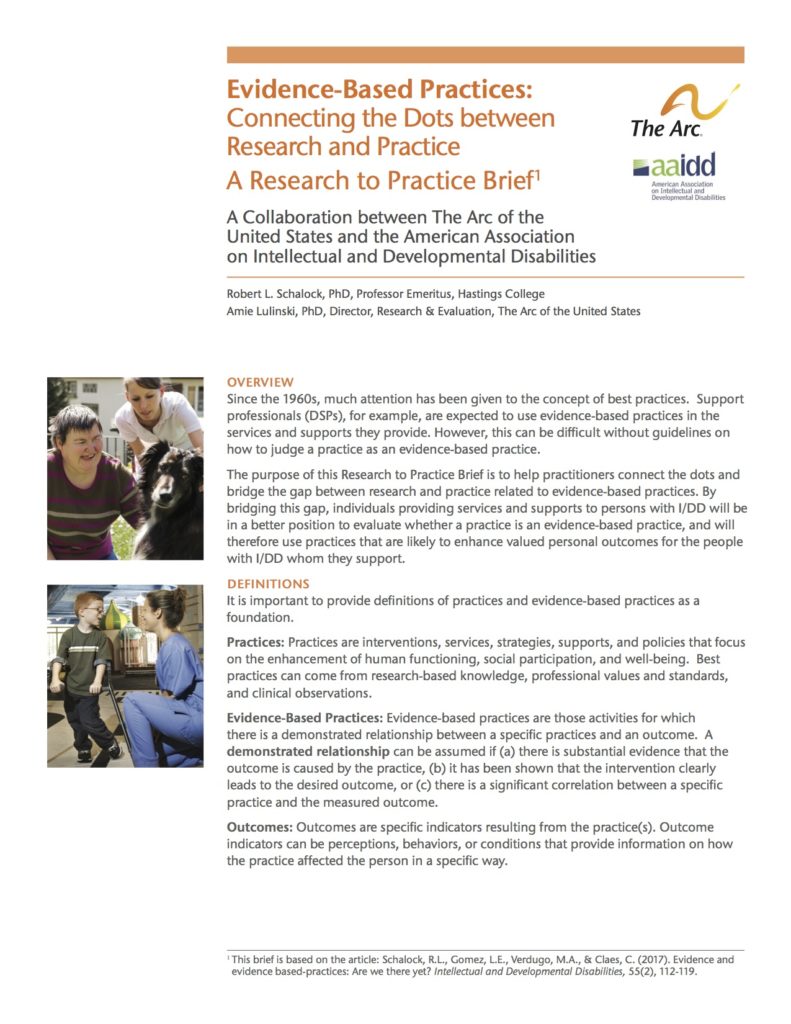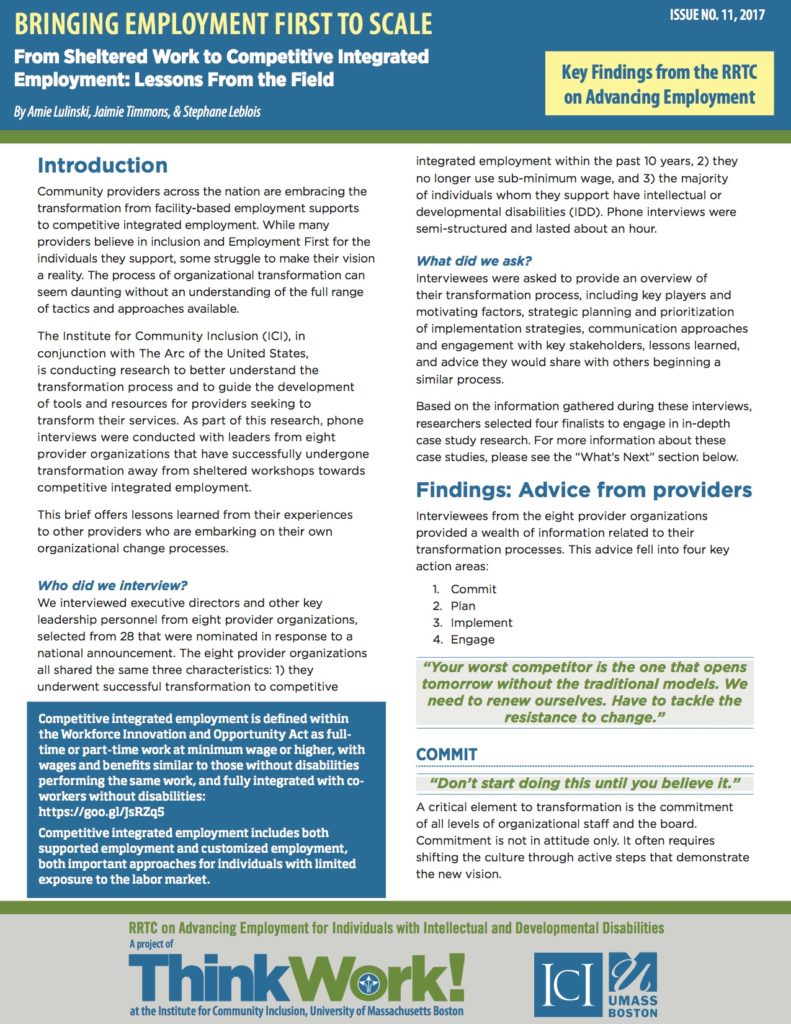What Does Giving Back Mean to You?
“Everybody can be great…because anybody can serve. You don’t have to have a college degree to
serve. You don’t have to make your subject and verb agree to serve. You only need a heart full of grace.
A soul generated by love.” ― Martin Luther King Jr.
Inclusive volunteering programs give people with IDD an opportunity that is special
and often rare—a way to give and not just receive community service.
Too often, people with disabilities are considered only to be the recipients rather than the givers of service. Thus, people with disabilities are not often given the opportunity to contribute to their community. By offering inclusive service opportunities, the MLK Day of Service project* gives people with disabilities the ability to give back, and counteracts this stereotype.
We asked volunteers at 2017 MLK Day of Service projects at The Arc of Luzerne County in Wilkes Barre, Pennsylvania, and at TARC in Tulsa, Oklahoma, to describe what serving others means to them.
Giving Others a Fresh Start
Volunteers with and without disabilities at The Arc of Luzerne County provided food assistance to people in need in their community through the Commission on Economic Opportunity, a local food bank. Volunteers worked to help gather, package, and distribute food to seniors, children, and families in need in Pennsylvania.
For Jay Sterling, a volunteer with The Arc of Luzerne, providing food assistance was an opportunity to help others overcome a struggle his family had growing up. “It’s important to help with the food prep [at my local food pantry] because when I was little we didn’t have much money like some families today. It feels terrible to grow up poor.”
For volunteer Diane Williams, helping people get the food they need is an opportunity to make sure children, do not go hungry. “It makes me happy that I am helping because I have two children, and I like to think that if children need food they’re getting it.”
Practicing Our Civic Duty
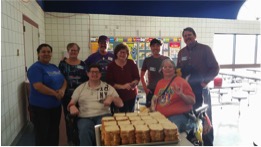 In February, volunteers with and without disabilities from TARC, the University of Tulsa’s True Blue Neighbors program, the Bridges Foundation, and A New Leaf came together to prepare meals for those in need in Oklahoma.
In February, volunteers with and without disabilities from TARC, the University of Tulsa’s True Blue Neighbors program, the Bridges Foundation, and A New Leaf came together to prepare meals for those in need in Oklahoma.
President of Tulsa People First Sean Lewis, who participated in the event, considers the importance of giving back to his community:
“I think it is very important as citizens and self-advocates that we show we care about the needs of people around us by getting outside our own routines and giving our time and energy to the Martin Luther King projects. Food supplied by the Tulsa Food Bank helps put food on the table for families that otherwise might have none. I was very happy to serve in whatever way I was able to such a good cause and project.”
For more on inclusive volunteering and how volunteering can help people fight stereotypes, practice their civic duty and give back to their community, visit https://www.thearc.org/inclusive-volunteering.
*In 2016, The Arc was selected by the Corporation for National and Community Service (CNCS), the federal agency that leads the Martin Luther King, Jr. Day of Service, to plan and execute volunteer projects that unite Americans in service for the MLK Day of Service and throughout the year. To date, 16 chapters of The Arc around the country have organized inclusive volunteer service projects where people with intellectual and developmental disabilities (IDD) volunteer alongside people without disabilities to provide food to people in their communities who are in need. In total, these projects have brought together over 1,000 volunteers to serve more than 14,000 people in need.


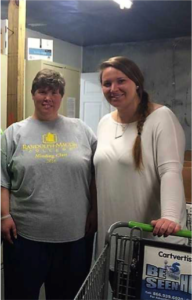

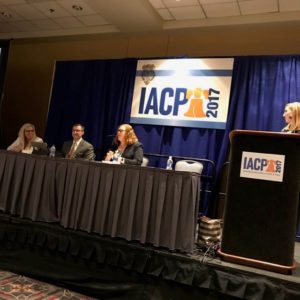
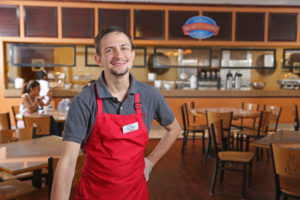 At the end of 2016, The Arc@Work launched a nationwide partnership with Baymont Inn & Suites. Through this initiative, The Arc@Work is helping individual hotels fill the brand-new Hometown Host position. The Hometown Host ensures guests feel at home and that there is plenty of delicious food throughout the daily breakfast service. The role is a symbol of the brand’s emphasis on neighborly service and dedication to community. The collaboration is a win-win for both organizations: helping individuals with intellectual and developmental disabilities (IDD) secure a regular job in the community while assisting Baymont hotel owners in finding reliable, passionate employees who can connect with their guests and provide them with a great experience.
At the end of 2016, The Arc@Work launched a nationwide partnership with Baymont Inn & Suites. Through this initiative, The Arc@Work is helping individual hotels fill the brand-new Hometown Host position. The Hometown Host ensures guests feel at home and that there is plenty of delicious food throughout the daily breakfast service. The role is a symbol of the brand’s emphasis on neighborly service and dedication to community. The collaboration is a win-win for both organizations: helping individuals with intellectual and developmental disabilities (IDD) secure a regular job in the community while assisting Baymont hotel owners in finding reliable, passionate employees who can connect with their guests and provide them with a great experience.